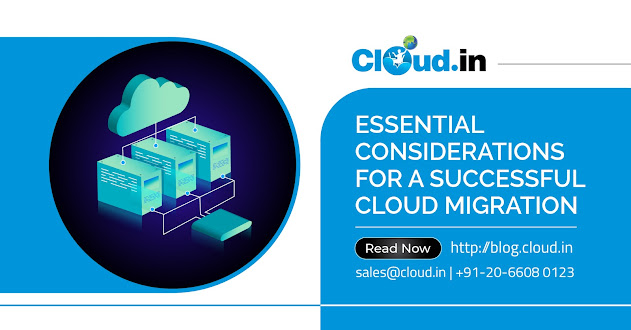Migration is simply a process of settling from one place to another. But it's not as simple as the definition is it?
You put a lot of effort into creating a masterpiece, you built a business and most likely the backbone is that one thing and it keeps becoming stronger with time.
Yes, you guessed it right. It is the IT infrastructure of your business. You have either built it from scratch or teamed up with experts who helped you get the seamless performance you ever wanted.
But, what do you do when you need to compete with the ever changing market, you want to stay ahead of the curve and you want to co-op up with the market demands or you may want to get more insights from the data.
How often do you want to keep disrupting your business model because you have that one useful information somewhere buried under a huge infrastructure.
That's probably when you could consider migration, migrating your whole system onto something more reliable, fast, cost effective and more importantly for an enhanced business agility.
Migration can be a game changer once you take your IT Infrastructure onto the relevant cloud platform.
Migration to a Cloud can give you everything that you can think of as far as the infrastructure is concerned.
Many people’s favorite beer HEINEKEN has had their infrastructure on site, they moved everything to the cloud.
By adapting to the digital transformation and having things on the cloud has increased their production and saved up $36 million.
By using Machine Learning they were able to get the insights such as the life cycle of the machines, and overall production estimation, this helped them make their next move and improve business agility overall.
Many of us already know Cloud is the future, no one wants to deal with the big machines on premises anymore, especially when you have a volatile market to serve.
Yet there is a mental block where the word ‘’Migration’’ scares them away in many ways.
Cloud migration is a complex process, and it is crucial to have a well-defined plan, experienced team, and clear communication throughout the migration journey. It's also essential to keep in mind that the cloud environment is dynamic, and ongoing optimization and adaptation are necessary to fully realize the benefits of cloud technology.
Let’s address the concerns in this blog - I would rather like to share the things that we should keep in mind while migrating to the cloud.
Data Security and Compliance: One of the primary concerns when migrating to the cloud is data security. Cloud companies need to ensure that their data remains secure throughout the migration process and after it's in the cloud. Cloud providers use encryption techniques to secure data both in transit and at rest,
Data Transfer and Downtime: Depending on the amount of data to be transferred, the migration process may result in downtime, which can impact business operations. To mitigate this, we can use methods such as Incremental Data Migration
Application Compatibility: Some applications may not be compatible with the cloud environment, requiring modifications or redevelopment. Ensuring that all applications work seamlessly in the cloud may require additional effort and resources. This can be achieved by testing on different parameters ensuring a seamless performance before the migration takes place. Doing one at a time would be the key.
Cost Management: While cloud services can offer cost savings, they can also lead to unexpected expenses if not managed properly. It's essential to monitor cloud usage and optimize resources to control costs effectively. For example AWS has more than 200 services to offer, using the right set of services will help you achieve your goal at a minimum cost.
Integration Complexity: Integrating cloud-based systems with existing on-premises infrastructure can be complex and require careful planning. Ensuring smooth communication between various components is crucial for maintaining business continuity. Communication is going to be the key, hence an expert to look over the overall migration is essential.
Vendor Lock-In: Migrating to a specific cloud service provider may result in vendor lock-in, making it challenging to switch to another provider in the future. Avoiding vendor-specific technologies can help mitigate this risk.
Organizational Resistance and Training: Employees may be resistant to change and require training to adapt to the new cloud-based workflows and tools. A lack of cloud expertise within the organization can also hinder the migration process. You can always rely on partners to overcome such issues, who have the expertise so you sit back and relax while the cloud migration takes place.
Regulatory and Legal Considerations: Different countries and industries have varying regulations regarding data storage and privacy. Ensuring compliance with these regulations when moving data to the cloud is crucial to avoid legal issues. Be aware of the T&Cs and nitty-gritties of cloud services as it can be different for different geographies.
To address these challenges effectively, organizations should conduct thorough planning, assess their infrastructure and applications, involve key stakeholders, and seek assistance from cloud migration experts or consultants. By understanding and proactively addressing these challenges, organizations can make their cloud migration smoother and more successful.
Written by, Ashwini Giri (Sales Manager, Cloud.in)



No comments:
Post a Comment